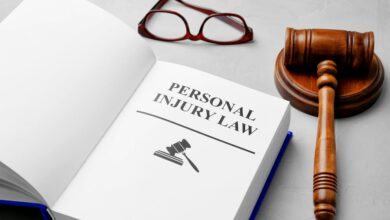25 Qualities Every Good Lawyer Should have in 2023

A professional lawyer is an individual who has been trained and qualified to practice law and provide legal advice and representation to clients. A professional lawyer has a thorough understanding of the laws, rules, and regulations that apply to their area of practice, and has the knowledge, skills, and experience necessary to advise clients on a wide range of legal matters. A professional lawyer must adhere to strict ethical standards and must maintain the confidentiality of client information. A professional lawyer must be responsive to client needs and must use good judgment, sound decision-making skills, and effective communication skills to provide the highest quality legal services. A professional lawyer should also be committed to continuous learning and professional development, to ensure that they are up-to-date with the latest developments in the law and their practice area.
Read More: The Scope of becoming a Lawyer: How to start a Career as a Lawyer?
Qualities of a Professional Lawyer
A professional lawyer should possess a combination of personal, professional, and technical qualities that are essential to providing effective legal services to clients. Here are 30 qualities that a professional lawyer should have:
- Knowledge of the law: A professional lawyer should have a thorough understanding of the laws, rules, and regulations that apply to their area of practice.
- Strong analytical skills: Lawyers must be able to analyze complex legal issues and provide clear and concise recommendations to clients.
- Attention to detail: Lawyers must be meticulous and detail-oriented to ensure that all relevant information is considered and all legal requirements are met.
- Excellent communication skills: Lawyers must be able to communicate effectively with clients, other lawyers, and the court, both orally and in writing.
- Ethical conduct: Lawyers must adhere to strict ethical standards, including the rules of professional conduct, to maintain the trust of clients and the integrity of the legal profession.
- Independence: Lawyers must be independent and impartial, and must not allow personal, political, or economic interests to influence their legal judgment.
- Confidentiality: Lawyers must maintain the confidentiality of client information and not disclose any confidential information unless required by law.
- Responsiveness: Lawyers must be responsive to client needs and provide prompt and effective legal services.
- Diligence: Lawyers must be diligent in their representation of clients and must take all necessary steps to protect their client’s interests.
- Flexibility: Lawyers must be flexible and adaptable to changing circumstances and be able to adjust their approach as necessary to achieve their clients’ goals.
- Strategic thinking: Lawyers must be able to think critically and strategically, and must be able to develop and implement effective legal strategies.
- Problem-solving skills: Lawyers must be able to identify and resolve legal problems in a timely and effective manner.
- Judgment: Lawyers must use good judgment and make sound decisions, even in difficult or complex situations.
- Persistence: Lawyers must be persistent in their pursuit of justice and must be willing to advocate for their clients even in the face of opposition.
- Strong negotiation skills: Lawyers must be able to negotiate effectively on behalf of their clients and must be able to reach mutually acceptable agreements.
- Leadership: Lawyers must be leaders in their practice area and must be able to motivate and inspire others.
- Team player: Lawyers must be able to work effectively as part of a team and must be able to collaborate with colleagues and other professionals.
- Empathy: Lawyers must be able to understand and appreciate the perspectives and concerns of their clients and must be able to provide empathetic and supportive legal services.
- Professionalism: Lawyers must be professional in their demeanor and must act in a manner that reflects the dignity and integrity of the legal profession.
- Commitment to justice: Lawyers must be committed to promoting justice and must be dedicated to advancing the cause of their clients.
- Adaptability: Lawyers must be able to adapt to changing circumstances and must be able to respond to new challenges and opportunities.
- Time management skills: Lawyers must be able to manage their time effectively and must be able to prioritize their workload to meet their clients’ needs.
- Objectivity: Lawyers must be objective and must not allow personal opinions or biases to influence their legal judgment.
- Technical competence: Lawyers must be knowledgeable about the technical aspects of their practice area and must be able to apply their technical skills effectively.
- Professional development: Lawyers must be committed to professional development and must continuously seek to improve their legal knowledge.
Read More: Aspiring Lawyer: 6 Different Areas of Law in the UK
Conclusion
In conclusion, a good lawyer is someone who possesses a combination of personal, professional, and technical qualities that are essential to providing effective legal services to clients. A good lawyer should have a thorough knowledge of the law, strong analytical skills, attention to detail, excellent communication skills, ethical conduct, independence, confidentiality, responsiveness, diligence, flexibility, strategic thinking, problem-solving skills, judgment, persistence, strong negotiation skills, leadership, empathy, professionalism, commitment to justice, adaptability, time management skills, objectivity, technical competence, and a commitment to professional development. A good lawyer should be someone who is dedicated to promoting justice, serving the interests of their clients, and upholding the integrity of the legal profession. If you think these traits apply to you and you’d like to become a lawyer, signing up for LSAT prep is the first step to making that happen.









